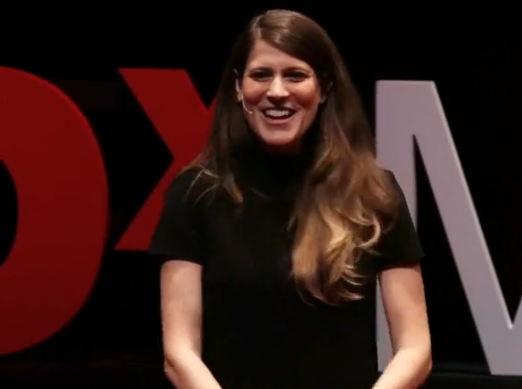(单词翻译:单击)
听力文本
A single sea hare will inseminate the partner in front of it and receive sperm from the one behind,
单只海兔会向正前方的配偶射精,并接受后方的精子。
which is sort of like an awesome time-saver, when you think about it.
这倒是个省时省力的好方法,不妨想象一下。
But if scientists had only seen this and they were like, "OK, we're just not going to touch that with a stick,"
但当科学家看到这个景象时,会说:“好吧,还是不要去碰它们,”
they would have missed the bigger thing about sea hares that makes them really remarkable.
但这样一来,他们就会错过关于海兔更重要的、着实夺人眼球的事情。
It turns out that these sea hares have a small number of very large neurons,
事实是:这些海兔仅有少量的巨大神经元,
which makes them excellent to use in neuroscience research.
这使得它们非常适合被用于神经科学研究。

And, in fact, the scientist Eric Kandel used them in his research to understand how memories are stored.
事实上,科学家艾瑞克·坎德尔将它们运用在了他的实验中,以理解记忆是如何存储的。
And you know what? He won a Nobel Prize for his work.
大家知道吗?他还因此获得了诺贝尔奖。
So go out there and pick up beetles and play in dirt and ask questions.
所以走出家门,捡拾甲壳虫,玩玩泥巴,并心怀好奇。
And own your fascination with gross stuff and don't be ashamed of it, because you never know what you're going to find.
驾驭你们对恶心事物的兴趣,不要胆怯,因为你们永远不知道你会发现什么。
And as I say at the end of all my videos, "Ew." Thank you.
就像我在所有视频的结尾说的:“好恶心哦!”谢谢。
演讲介绍
我们可以从生命中黏滑,难闻的一面中学到什么呢?在这个幽默的演讲中,科学记者安娜 · 罗斯柴尔德向我们展示了恶心科学的潜在魅力,同时解释了为什么对自然,医学和科技中令人毛骨悚然的部分阻碍了我们接触健康和世界重要的知识资源。罗斯柴尔德说过:“当我们探索生命中恶心的一面时,就理解了未知的观念,甚至发现了从未发现的美丽。


